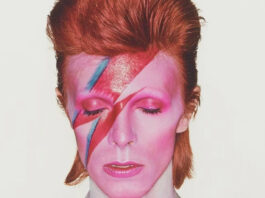Jazz is more than just a genre — it’s a cultural movement, a story of resilience, and a fusion of emotion and rhythm that continues to inspire generations. Born in the early 1900s within African-American communities in the southern United States, jazz combined the soul of African rhythms with the structure of Western musical traditions. What started as a form of expression and resistance soon evolved into a global art form, influencing every corner of the music world.
In the 1920s and 1930s — often referred to as the golden age of jazz — artists from New Orleans, the city considered the birthplace of jazz, brought this sound to the world. Through instruments like the saxophone, piano, trumpet, and double bass, they crafted a sound that remains timeless.
Today, jazz continues to be a symbol of creativity and freedom. To celebrate its enduring power, here are 10 of the greatest jazz albums of all time — masterpieces that shaped the course of music history.
1. Ella Fitzgerald – Ella Fitzgerald Sings the Duke Ellington Songbook (1957)
No list of iconic jazz albums would be complete without Ella Fitzgerald, often called The First Lady of Song. In collaboration with Duke Ellington and his orchestra, this album captures the essence of pure jazz elegance.
Released in 1957, it’s part of her legendary Songbook Series and remains a cornerstone of vocal jazz. Fitzgerald’s incredible phrasing and Ellington’s genius compositions blend perfectly to create one of the genre’s defining works.
2. Charlie Christian – Solo Flight: The Genius of Charlie Christian (1972)
Though Charlie Christian passed away tragically young, his influence on bebop and cool jazz is immeasurable. This posthumous 1972 compilation brings together his finest performances, showcasing his pioneering electric guitar technique.
Christian’s innovative sound helped shape modern jazz guitar, making this album a must-hear for true jazz purists.
3. Wayne Shorter – Speak No Evil (1966)
Released under Blue Note Records, this album stands as a masterpiece of hard bop and modal jazz.
Wayne Shorter’s saxophone playing on Speak No Evil is both haunting and poetic, pushing the limits of harmonic structure. The title track has since become one of the most studied compositions in jazz history. It’s an essential piece for anyone exploring the evolution of modern jazz.
4. John Coltrane – Blue Train (1958)
When it comes to defining moments in jazz, John Coltrane’s Blue Train is at the top of the list.
Recorded in 1958, this album embodies Coltrane’s spiritual depth and technical brilliance. His solos soar with emotion and precision, setting a new benchmark for jazz improvisation. Blue Train isn’t just a record — it’s a musical pilgrimage for jazz fans worldwide.
5. Cannonball Adderley – Somethin’ Else (1958)
A hard bop classic, this album features a dream lineup: Miles Davis on trumpet, Hank Jones on piano, and Sam Jones on bass.
Adderley’s rich tone and seamless interplay with Davis make Somethin’ Else one of Blue Note’s most successful releases ever. It’s often praised as a “perfect example” of how technical mastery and emotional storytelling can coexist in music.
6. Kurt Rosenwinkel – The Next Step (2001)
A modern gem in the jazz world, Kurt Rosenwinkel’s The Next Step bridges the gap between classic and contemporary.
Released in 2001, this album showcases Rosenwinkel’s fluid guitar style and forward-thinking compositions. It’s proof that jazz continues to evolve, with artists like him keeping the spirit alive through innovation and passion.
7. Herbie Hancock – Maiden Voyage (1964)
Herbie Hancock has never been afraid to experiment, blending elements of funk, electronic, and pop into his works. Yet, Maiden Voyage remains one of his most traditional — and most beloved — albums.
With Freddie Hubbard, Ron Carter, Tony Williams, and George Coleman, this 1964 masterpiece explores themes of the sea and adventure. Its fluid melodies and harmonies evoke the feeling of an oceanic journey, earning it a permanent place among the greatest jazz records ever made.
8. Dave Brubeck – Time Out (1959)
Few albums have reshaped jazz rhythm the way Dave Brubeck’s Time Out did.
Famous for its unconventional time signatures, this 1959 release introduced a fresh approach to jazz composition. The hit track “Take Five” became the first jazz single to sell over a million copies, proving that complex music could also be accessible and commercially successful.
Even decades later, Time Out still feels modern and alive — a timeless blend of intellect and groove.
9. Louis Armstrong – Satchmo at Symphony Hall (1947)
If jazz had a single superstar, it would be Louis Armstrong. His groundbreaking work in improvisation, tone, and rhythm forever changed the genre.
Recorded live in 1947, Satchmo at Symphony Hall captures Armstrong at his finest — spontaneous, joyful, and larger than life. The album’s energy and authenticity showcase why Armstrong remains a symbol of jazz excellence.
10. Miles Davis – Kind of Blue (1959)
Perhaps the most famous jazz album ever recorded, Miles Davis’s Kind of Blue is a universal masterpiece.
With contributions from John Coltrane, Bill Evans, and Cannonball Adderley, the album defined the modal jazz era and influenced countless musicians across genres.
Even listeners who aren’t typically fans of jazz often own this album — that’s how powerful and accessible it is. More than half a century later, Kind of Blue continues to represent the soul and sophistication of jazz at its finest.



